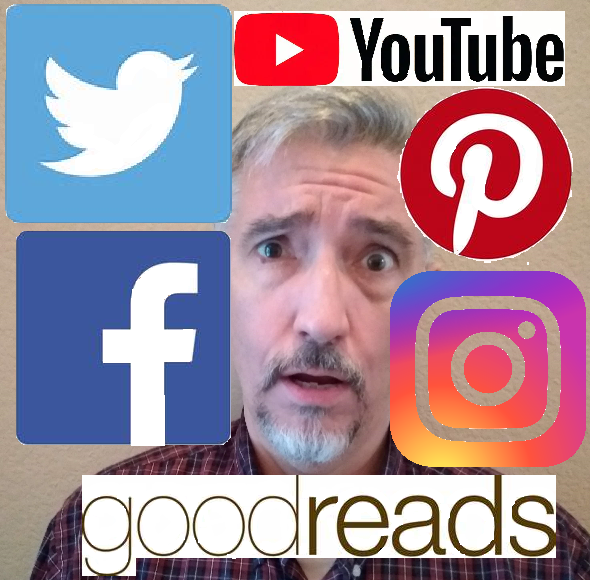How much should your readers know about you? In this age of Facebook, Twitter, and Instagram, when everything private is public, is it necessary to reveal every detail?
Before social media and even before the internet, authors were mysterious. Each one seemed like a magical wizard living in some unknown and hidden cave. A publisher would release a book, but readers wouldn’t know anything about the wizard, and publishers wouldn’t tell what they knew.

In those days, you could read the ‘About the Author’ section on the book jacket or an occasional magazine interview, but that was all you knew. The wizards stayed in their caves, typing away.
Times have changed. If you like a particular author, you can find out home town, number of cats owned, shoe size, political leanings, and a description of that writer’s most recent meal. No more wizards; no more mysteries; it turns out authors are just everyday people with an odd tendency to sling words around.
As a writer, you may still choose to remain a digital hermit, invisible to Facebook, a wizard in your cave. But you’d be going against the trend, and against the current guidance.
The web is filled with advice blogs for new authors. You must have a social media presence. Your readers are curious about you, so you must connect with them. Be authentic; show your audience you’re a real person. A few hours spent on social media will help grow your book sales.
Not all authors follow this advice. One of them, Tom Corson-Knowles, recommends writers shun social media entirely. He argues you’ll achieve better sales by writing better books; staying off Twitter will give you more free time to write; and social media is cramping your creativity.
Each writer must take the path that seems right, and be willing to change if that’s not working. As for me, I write these weekly blogposts, post on Twitter and Facebook once a week or so, and sometimes post book reviews on Goodreads. I rarely talk about personal stuff on those platforms.
Although I’d be more comfortable as a mysterious, cave-dwelling wizard, I’m willing to admit things are changing. Almost everyone shares personal details these days, and if I knew I could increase sales by posting a few things, I’d do it.
For now, I’ll reveal one spicy secret. Though I like dogs and (sometimes) cats, there are currently no pets in the home of—
Poseidon’s Scribe

